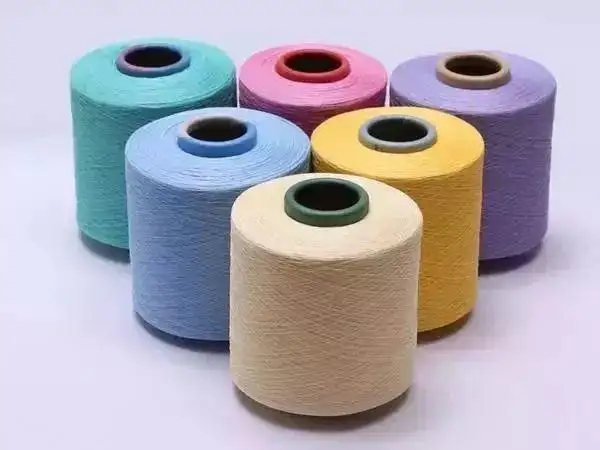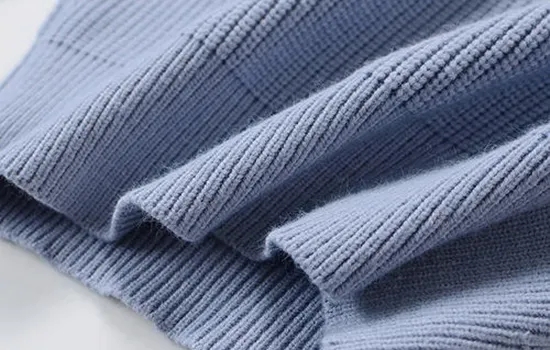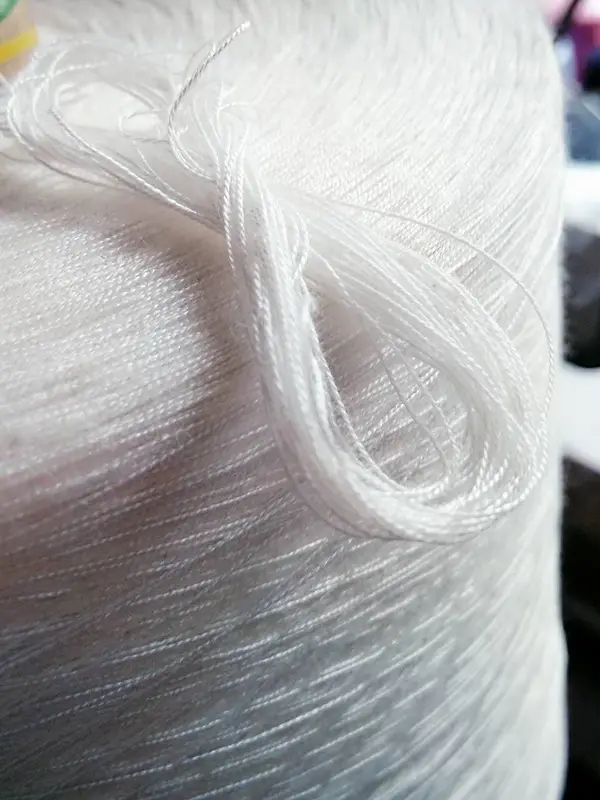Textile yarns produced by different yarn forming and twisting processes will have different yarn structures and different product characteristics.
1.Strength
Yarns strength depends on the cohesive force and friction between fibers. If the shape and the arrangement of fiber are not good, as there are bending, circling, folding and winding fibers, etc., it will shorten the length of fibers and weaken the contacts of fibers. Hence, there will be easily produce slip between fibers and reduce yarn strength.
It has been tested that if the strength of ring spun yarn is 1, the strength of other yarns are: rotor spun yarn 0.8~0.9, air-jet spinning yarn 0.6~0.7, vortex spinning yarn 0.8 and compact spinning yarn maximum 1.15.
2.Hairness
The handle and features of textile products are mainly determined by the size of hair. It is obvious from the production test that hair less than 2mm in length has little effect on the production process and the appearance quality of the fabric, instead it imparts fabrics a naturally soft hand feeling. However, hair more than 3mm in length is a potential factor influencing yarn quality. Comparing with traditional ring spun yarn, the rotor spun yarn, vortex spinning yarn and compact spinning yarn contain less hair with length of 1~2mm. And because air-jet spinning yarn has less winding fibers and its twistless yarn core coverage is less, so it has more short hair. Of cause, in the spinning process, the number of hair can be controlled by adjusting the technological parameters.
3.Abrasive resistance
The abrasive resistance of yarns is closely related with the structure of yarns.
Because most of the fibers of traditional ring spun yarn are spiral, when it is under repeated friction, spiral fibers will gradually become axial fibers. So that the yarn is easy to lose twist and disintegrate, then is quickly rubbed off. Therefore, its abrasive resistance is poor.
Non-traditional spinning yarn has obvious advantages in abrasive resistance. Rotor spun yarn, air-jet spinning yarn and vortex spinning yarn are all composed of yarn core and wrapping fiber. The surface of the yarn is covered with irregular winding fibers. The spinning yarn does not easily disintegrate. And the coefficient of surface friction of yarn is big. The cohesive force between yarns of textile is good, which makes the yarns not slip easily. Hence, the abrasive resistance is good.
Comparing with ring spun yarn, the fibers of compact spinning yarn are in alignment. The yarn structure is tight. The fibers will not loose easily. So its abrasive resistance is good.
4.Twist potential
Twist potential is also an important feature of yarn, which determines some properties of fabrics, as the slant of knitting cloth.
Traditional ring spun yarn and compact spinning yarn are true twist yarn, which have big twist potential. They are easy to cause slant and hemming knitting fabrics.
The yarn structure of rotor spun yarn, air-jet spinning yarn and vortex spinning yarn decides their small twist potential. Rotor spun yarn has both z twist and s twist, so its twist potential is the smallest. In air-jet spinning yarn, there is a lot of parallel fibers. So its torque is small. It is also has good post-processing characteristics.
5.Anti-pilling
Knitted fabrics of vortex spinning yarn are good in abrasive resistance. They have high anti-pilling level. That is because vortex spinning yarn has a flat core in the central part and it is covered with winding fibers outside. The fiber orientation is obvious and yarn friction coefficient is high. The friction between yarns of textile is good, which will not easily slip and the abrasive resistance is improved. In addition, pilling is closely related to yarn hairiness. It can be seen from the pilling test that fabric of vortex spinning yarn is level 4~4.5, fabric of air-jet spinning yarn is level 4, traditional ring spun yarn is level 2, fabric of rotor spun yarn is level 2~3 and fabric of compact spinning yarn is 3~4.
Post time: Oct-21-2022




